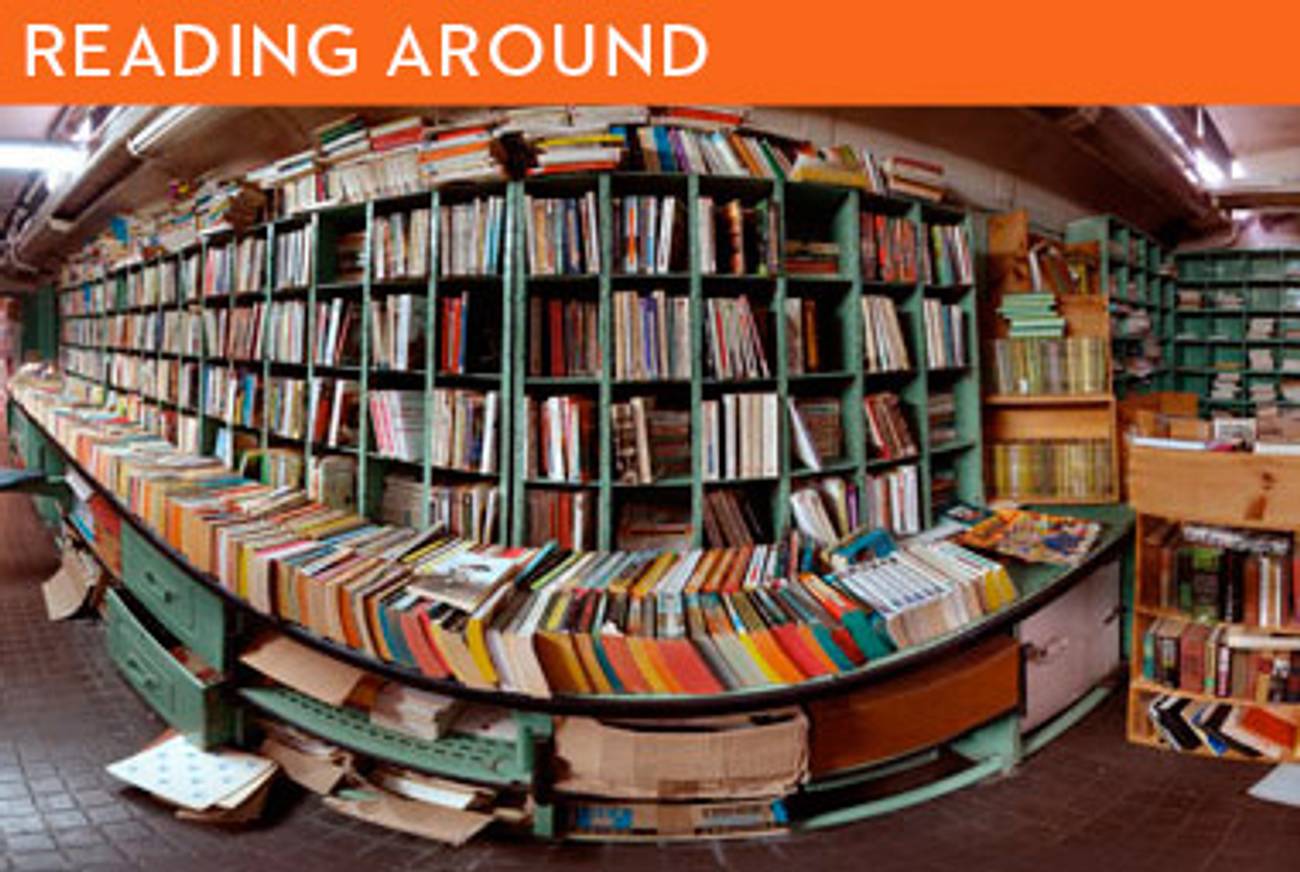On the Bookshelf
Polemics and pleas, productive and inflammatory: new books on Israel and Palestine




As Jeffrey Goldberg and Hussein Ibish’s op-ed, “Good News From the Middle East (Really),” argued last week, now’s no time to indulge in despair about Israel and Palestine. Conveniently for Jewish readers, then, two new books aim to give all of us a clearer understanding of who the Palestinians are by telling the stories of Sami al Jundi and Izzeldin Abuelaish, respectively, in The Hour of Sunlight: One Palestinian’s Journey From Prisoner to Peacemaker (Basic, February) and I Shall Not Hate: A Gaza Doctor’s Journey on the Road to Peace and Human Dignity (Walker, January). Both men have suffered at the hands of Israelis: Al Jundi, who was a young aspiring terrorist, spent 10 years in Israeli jails, while Abuelaish, a fertility doctor who has worked in Israeli hospitals, lost three daughters instantly when an Israeli shell hit his house in Gaza in early 2009. Yet rather than revel in the infinite bitterness and rancor exuded by so many small minds on both sides, both of these men express hopes for a peaceful compromise that will alleviate the suffering of Palestinians and offer security to Israelis.
***
Those less interested in personal histories—that is, policy wonks who don’t mind shelling out $140 for 392 pages of academic prose—can brush up on how and why Israel keeps track of Palestinians in Surveillance and Control in Israel/Palestine: Population, Territory and Power (Routledge, December). Co-edited by David Lyons, who directs the Surveillance Studies Centre at Queen’s University in Kingston, Ontario—an apt position, one might say, from which to watch over this burgeoning field—the book includes contributions from Israeli, Palestinian, and Canadian scholars on topics ranging from “colour-coded paperwork for Palestinian population control” to the “behavioral profiling in Israeli aviation security.”
***
But, hey, if you want despair, you can certainly find plenty reason for it in books that rehash predictably nonproductive positions on the conflict. From Camp David to Cast Lead: Essays on Israel, Palestine, and the Future of the Peace Process (Lexington, February) offers up shocking news, such as: Avi Shlaim finds Ariel Sharon a bit too aggressive on the issue of the Palestinians! Nor should anyone be surprised by what they find in the new edition of The Goldstone Report (Nation, January) edited by Philip Weiss—unless, that is, they have thus far neglected to read Michelle Goldberg’s fascinating Tablet profile of the passionately anti-Zionist blog impresario.
***
Meanwhile, if you’d like to know how a literary scholar, trained in the analysis of verse, transforms herself into a noted anti-Zionist polemicist, The Jacqueline Rose Reader (Duke, February) walks you through the process. The collection includes Rose’s essays on Virginia Woolf and sundry psychoanalytic topics, an excerpt from her feminist sequel to Proust, and statements of her antipathy for Israeli policies (such as “Why Zionism Today Is the Real Enemy of the Jews”). For better or worse, Rose is the type of thinker who can acknowledge that academic boycotts of Israel have all sorts of problems—they’re “inconsistently and somewhat randomly applied,” and they shut down dialogue in precisely the situations in which open dialogue should be encouraged—but supports one anyhow, “on the grounds that, at the level of international politics, nothing is being done.”
***
One productive thing that both critics and supporters of Israel could spend more time doing: learning the languages spoken and written by Israelis and Palestinians. In the same way that it is generally accepted that it is necessary to speak Chinese to write with any authority about China, or French to write about France, one wishes more of the polemicists concerned about the Middle East would acknowledge that before they begin nattering on about solutions or abuses, they might want to study up. (Rose’s 2007 book on Zionism cites untranslated sources in French and German, but not, it seems, in Hebrew or Arabic.) The new edition of Sarah Nicholsen’s Complete Biblical Hebrew (McGraw-Hill, February) won’t help much, but Shula Gilboa’s Complete Modern Hebrew: A Teach Yourself Guide (McGraw-Hill, February) might. It seems, at least, that the book’s designers have been doing their best to learn a little more about Israel: While the 2004 edition had a cover image featuring that staple of the mostly non-Hebrew speaking Diaspora, the bagel, the new one features a somewhat more appropriate sivivon, which, while not particularly “modern,” at least generally displays four Hebrew characters.
In fact, in studying the languages, one cannot help but appreciate the interdependence of Jews and Arabs in Israel. Especially if you pay attention to the slang terms cataloged by Danny Ben Israel in Zubi!: The Real Hebrew You Were Never Taught in School (Plume, February)—the subtitle of which suggests the book has set its sights pessimistically on the rather limited audience of ex-Hebrew day schoolers (who, honestly, have probably picked up at least the basic obscenities). Ben Israel justly acknowledges that “Israel owes a lot to multilayered, gloriously obscene Arabic curses” like kus ocht abuk ars, not to mention in-al abuk—and shouldn’t people who share the same ways of expressing fury and disgust be able to find some way to live in peace?
Josh Lambert (@joshnlambert), a Tablet Magazine contributing editor and comedy columnist, is the academic director of the Yiddish Book Center, Visiting Assistant Professor of English at the University of Massachusetts, Amherst, and author most recently of Unclean Lips: Obscenity, Jews, and American Culture.
Josh Lambert (@joshnlambert), a Tablet Magazine contributing editor and comedy columnist, is the academic director of the Yiddish Book Center, Visiting Assistant Professor of English at the University of Massachusetts, Amherst, and author most recently ofUnclean Lips: Obscenity, Jews, and American Culture.